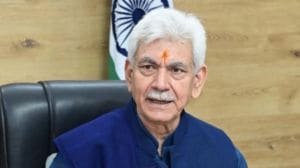Let the Queen visit, unapolegetically
A solemn Bill Clinton stood with the White House in the background apologising for a shameful' government act committed some six decades a...

A solemn Bill Clinton stood with the White House in the background apologising for a shameful’ government act committed some six decades ago. CNN’s, and a hundred other cameras, broadcast him in tears, saying: I am sorry. The national audience of African-Americans was overwhelmed and readily forgave. Even the Whites were moved. Clinton wiped his eyes, his people a haunting memory; or, so is presumed.The Tuskege Experiment of the 1930s was an inhuman act where a select number of blacks were made Guinea pigs. A small fry, one will argue, when put side by side with what the US Administration did to the civil rights movement in the 60s. Another apology is long overdue’. And the US will indeed apologise, maybe in 2020s.
The same US, however, will never apologise for its cruelties in Vietnam; nor will France. Because that is poor diplomacy. Western democracies do apologise, but only to its own people. If post-War Germany did, it was for having killed its own’ people and because Israel didn’t exist in 1939. Diplomacy has a talent for farce and remorselessness.
The Queen Elizabeth II of Britain is too important to escape the ills of diplomacy. The itinerary of her goodwill visit to India includes Amritsar where there is a park which saw massacre of more than a thousand (nationalist figure) patriotic Indians 78 years ago. Now we are saying: The Queen must apologise. And her government is asking: Why, need we?
The logical Indian answer to this question must be: No, please don’t. Visit the Golden Temple, stroll through the Jallianwala Bagh…have fun. We have grown too much grass there for you to see the blood-stained earth.The reason why the Queen, and for that matter anyone from among our former rulers, needn’t shed tears is: We do not have to subject our struggle for freedom to the humiliation that diplomacy essentially is. We are not uneasy about having paid a price to be free. Let Britain reserve the precious apology for its own people. (Prime Minister Gladstone had made an attempt to beg Irish people’s forgiveness a hundred years ago, but failed. It’s again long overdue’.)
There is a general agreement among our political historians that the British colonial rule was semi-democratic’. We also agree that in lieu of the resources that the British stole from India, they gave us institutions and training which provide for the foundation of free India’s lasting democracy. The British rule, at the same time, was a coercive machinery whose principle aim till 1945 was to stay, anyhow. Even a cursory glance at the long history of colonialism through the world shows us that to rule was to kill. In fact, they were a little less murderous in India, and have been much less remorseless ever since.
So let us not expect Britain to indulge in poor diplomacy. Let us introspect and realise how many apologies our own government, and not to forget, Pakistan, owes its people. A priority list can run as follows.
India and Pakistan must apologise for the reciprocal savagery that was committed during partition. They may not reunite, but can live without more of such mutual killings.
Our government and the Congress party can’t delay seeking Sikhs’ apology for what Indira Gandhi did to their most sacred shrine and what her partymen did to them in 1984.
We have to be officially sorry for having razed the Babri Masjid and a good deal of Muslim confidence in our democracy. The masjid may never be rebuilt, but the confidence can. (It may sound rather hypocritical, but we have got to do it.)Whoever wants the Queen to apologise — the BJP or the Prime Minister or some nationalist’ on the lunatic fringe — doesn’t understand the basic nature of colonial rule in India. It was not a regime of mass murders: Jallianwala was never repeated. As for the infamous medal to Gen. Dyer, all of us have been awarding our butchers through history.






- 01
- 02
- 03
- 04
- 05

























